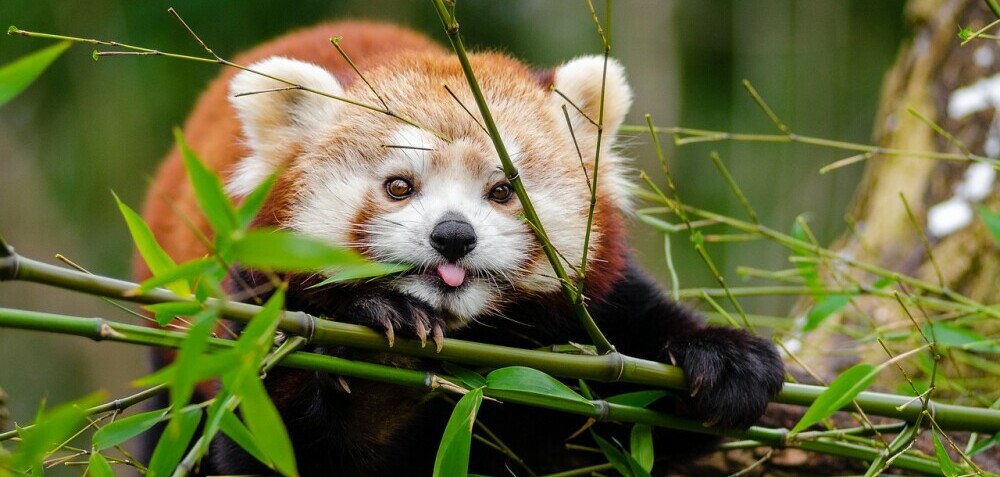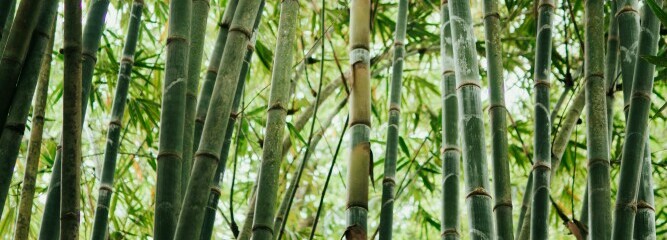Exploring The Culinary World Of Red Pandas: What Do Red Pandas Eat
Red pandas, with their distinctive rust-colored fur and adorable appearance, captivate the hearts of animal lovers around the world. One aspect of their lives that piques curiosity is their diet. In this article, we delve into the intricate details of what red pandas eat, exploring their dietary habits, nutritional needs, and the conservation challenges they face in the wild.
Natural Habitat and Dietary Adaptations
Red pandas are native to the dense forests of the Himalayan region, where bamboo reigns supreme. Their diet primarily consists of bamboo shoots and leaves, making up about 85-95% of their daily intake. These agile creatures have evolved to possess a specialized thumb-like wrist bone, aiding them in grasping and manipulating bamboo stems with remarkable dexterity.

Beyond Bamboo – A Varied Menu
While bamboo is a staple in their diet, red pandas are not exclusive herbivores. In the wild, they supplement their bamboo-centric meals with fruits, berries, acorns, and occasional insects. This diverse diet ensures they obtain a range of nutrients necessary for their well-being. In captivity, their diet may be further expanded to include specially formulated biscuits, eggs, and vegetables.
Nutritional Requirements
Red pandas, like many other bamboo-eating animals, face the challenge of extracting sufficient nutrients from their primary food source. Bamboo is notoriously low in calories, and red pandas compensate by consuming large quantities daily. Their digestive system has adapted to efficiently process bamboo, extracting nutrients and expelling indigestible fibers. However, captivity often requires additional dietary support to meet their nutritional needs adequately.

Conservation Challenges and Dietary Impacts
The conservation status of red pandas is a growing concern due to habitat loss, fragmentation, and poaching. As their natural habitats diminish, red pandas face challenges in finding sufficient bamboo and other food sources. Conservation efforts not only focus on protecting their habitats but also on ensuring their dietary needs are met, especially in captivity, to maintain a healthy and genetically diverse population.
Conclusion:
Understanding what red pandas eat goes beyond mere curiosity; it plays a crucial role in their conservation. As these charming creatures navigate the challenges posed by diminishing habitats, preserving their dietary needs becomes integral to their survival. From bamboo feasts in the wild to carefully curated diets in captivity, red pandas continue to capture our fascination with their unique culinary preferences.
FAQ Section:
Q1: Can red pandas eat meat?
A1: While red pandas are primarily herbivores, they may occasionally consume insects, eggs, and small animals in the wild. However, this is not a significant part of their diet.
Q2: Do red pandas eat only bamboo?
A2: Bamboo forms the majority of a red panda’s diet, but they also consume fruits, berries, acorns, and occasionally insects in the wild. In captivity, their diet may be further diversified.
Q3: How much bamboo do red pandas eat in a day?
A3: Red pandas consume a large quantity of bamboo daily, often up to 200,000 bamboo leaves or more, as bamboo is low in calories and nutrients. This helps them meet their nutritional needs.
Q4: Can red pandas survive on bamboo alone?
A4: While red pandas have adapted to extract nutrients from bamboo efficiently, they require a diverse diet to meet all their nutritional needs. In captivity, additional dietary supplements are often provided to ensure their well-being.
Thanks for reading! If you liked this article please leave us a comment and check out some of our others! Have a specific query you want answered? Shoot us an e-mail at contact@commoncuriosities.com
Looking for some further reading on cats? Check out the articles below!




